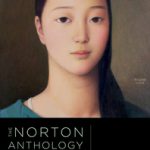English 255/Literature and Ideas
Representations of Violence in Literature and Society
Explore the violence inherent in fairy tales . . .
. . . by reading and analyzing the familiar story of “Little Red Riding Hood” that you grew up with
Explore detective fiction and crime novels . . .
. . . by reading the classic Sherlock Holmes stories of Sir Arthur Conan Doyle
. . . by watching Quentin Tarentino’s film Pulp Fiction
Explore past and contemporary views on war . . .
. . . by reading classic war poetry
. . . by analyzing Tim O’Brien’s post-modern novel The Things They Carried
Explore issues related to dystopian literature. . .
. . . by reading the Pulitzer-Prize winning novel The Road and the The Hunger Games
As philosopher Hannah Arendt wrote in her 1969 book On Violence, “No one engaged in thought about history and politics can remain unaware of the enormous role violence has always played in human affairs.” Although Arendt wrote this now-classic text over forty years ago, her words remain significant. Violence is something that we often don’t take time to consider or question because we are confronted by it everyday.
How violence is represented, however, is an important issue, for it affects not only our understanding of history (both past and present), but also how we react to the world around us, and I developed this course so we can investigate these issues.
This class, Representations of Violence in Literature and Society, seeks to examine the role that violence plays in our understanding of culture as we engage with and discuss the philosophical, ethical, and literary underpinnings of violence. During the course of the semester, we will examine, through class discussions and writing assignments, the various ways that violence is represented in literary texts. We will try to come to an understanding of the many ways in which violence can be represented and of what those differences in representation might mean for us as readers and interpreters of literature.
Some of the questions we will be asking include:
- In a world that has become increasingly more violent, why do so many novels, texts, and films continue to present violent images?
- What constitutes violence? Can there be various definitions of what constitutes a violent act? Does each one of us have to define violence in the same way?
- How does the victim/perpetrator/witness triad figure into our discussion of violence?
- Is violence ever gendered? If so, in what ways?
- How do writers represent violence through various genres?
- How does the significance of violence change as its representation changes?
- How does the representation of violence differ between literary works that are set in the past and those that are set in the present?
- Do we understand and react to violent acts differently depending on whether they are directed towards individuals or towards masses?
- Does the current commercialization of violence (which can be seen in the popularity of films like Pulp Fiction) have any relation to the kinds of violence we find in literary texts?
- Are certain representations of violence characteristic of certain literary genres (epics, detective fiction, war stories, etc.)?
In order to answer these questions, we will be reading both literary and philosophical texts by a diverse set of writers from various time periods. The class will be organized by various genres (including detective fiction, crime fiction, war literature, and dystopian literature) so we can attempt to understand the historical shifts and cultural conditions that surround violence in Western culture.
Texts we’ll be reading/viewing include various versions of the classic fairy tale “Little Red Riding Hood,” selections from Homer’s ancient Greek poem The Iliad, the 11th-century Anglo-Saxon poem The Battle of Maldon, Tim O’Brien’s novel The Things They Carried, Edgar Allan Poe’s detective story “The Murders in the Rue Morgue,” Sir Arthur Conan Doyle’s Sherlock Holmes’ tale “A Scandal in Bohemia,” Dashiell Hammett’s The Maltese Falcon, Quentin Tarentino’s classic film Pulp Fiction, Cormac McCarthy’s Pulitzer-prize-winning novel The Road, and Suzanne Collins’ The Hunger Games.
English 255 will fulfill the following transfer requirements:
- IGETC, Area 3, Group B (Humanities)
- CSU GE, Area C, Group 2
- AA degree, Group C (Humanities)
For a copy of our course syllabus, please visit our class Blackboard website.
Resources for our class:
- Henry Jenkins’ response to the Aurora, Colorado, theatre shooting and some excellent questions to think about when we discuss violence and how it is represented in literature
- Professor Steven Pinker’s TED Talk on “The Myth of Violence”
- A clip of the battle between Achilles and Hektor from the 2004 film Troy
- Byrhtnoth’s challenge read in Old English from The Battle of Maldon
- Some interesting resources related to Tim O’Brien:
- Author Tim O’Brien’s talk at Arlington Central Library about The Things They Carried
- An article by O’Brien called “The Vietnam in Me” from The New York Times
- Keynote Address called “Writing Vietnam” by O’Brien, given at Brown University
- Some interesting resources related to Cormac McCarthy:
- Cormac McCarthy interview (done by Oprah) about The Road
- Cormac McCarthy’s explanation of his punctuation style
- Wall Street Journal article about Cormac McCarthy and The Road
- Series of short interviews with Suzanne Collins, author of The Hunger Games
- Free audio book of The Hunger Games



